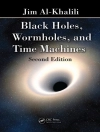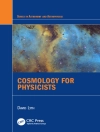Within the Office of Space Science of the National Aeronautics and Space Administration (NASA) special importance is attached to exploration of the planet Mars, because it is the most like Earth of the planets in the solar system and the place where the first detection of extraterrestrial life seems most likely to be made. The failures in 1999 of two NASA missions Mars Climate Orbiter and Mars Polar Landercaused the space agency’s program of Mars exploration to be systematically rethought, both technologically and scientifically. A new Mars Exploration Program plan (summarized in Appendix A) was announced in October 2000. The Committee on Planetary and Lunar Exploration (COMPLEX), a standing committee of the Space Studies Board of the National Research Council, was asked to examine the scientific content of this new program. This goals of this report are the following:-Review the state of knowledge of the planet Mars, with special emphasis on findings of the most recent Mars missions and related research activities;-Review the most important Mars research opportunities in the immediate future;-Review scientific priorities for the exploration of Mars identified by COMPLEX (and other scientific advisory groups) and their motivation, and consider the degree to which recent discoveries suggest a reordering of priorities; and-Assess the congruence between NASA’s evolving Mars Exploration Program plan and these recommended priorities, and suggest any adjustments that might be warranted.
Committee on Planetary and Lunar Exploration & Division on Engineering and Physical Sciences
Assessment of Mars Science and Mission Priorities [PDF ebook]
Assessment of Mars Science and Mission Priorities [PDF ebook]
Mua cuốn sách điện tử này và nhận thêm 1 cuốn MIỄN PHÍ!
Ngôn ngữ Anh ● định dạng PDF ● Trang 144 ● ISBN 9780309508339 ● Nhà xuất bản National Academies Press ● Được phát hành 2003 ● Có thể tải xuống 3 lần ● Tiền tệ EUR ● TÔI 7150075 ● Sao chép bảo vệ Adobe DRM
Yêu cầu trình đọc ebook có khả năng DRM












